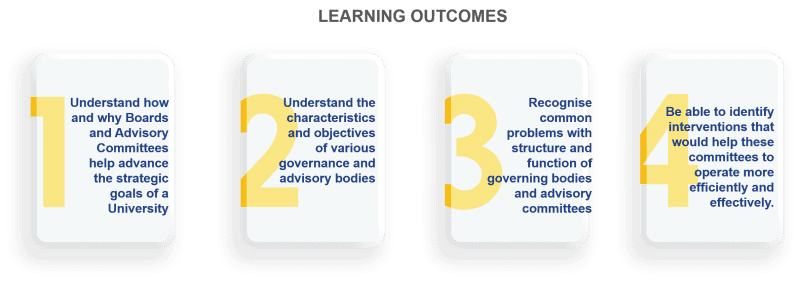Good Governance is at the Core of any Higher Education Institution.
A governing Board provides the highest level of governance in all types of institutions: public and private, for-profit and non-for-profit. Accreditation bodies expect to see both a governance structure that is fit for purpose and evidence that governance processes are effective. This course identifies what’s needed to make the top governing body effective and examines how academic governance cascades down through an institution.
Many universities also establish various types of Advisory Committees to help improve the operations and innovations of the institution. Evidence suggests that most are ineffective, even though they usually comprise senior, influential individuals who are keen to help. Attention to a few key features of committee structure and operation can ensure that the wisdom and networks of advisory committee members can be harnessed.

This course will take you approximately 8 hours to complete. A learner who explores the material in more depth will take approximately 10 hours and a learner who skims the course content will take 4 hours.



